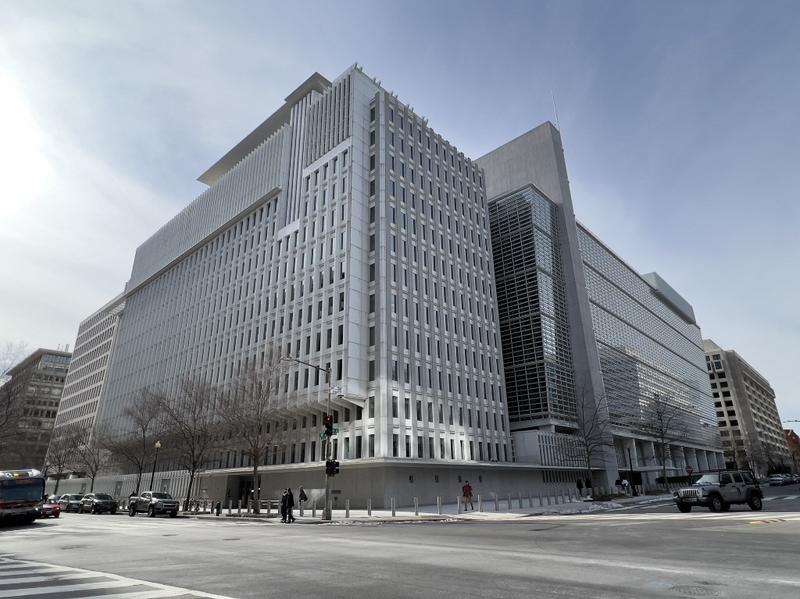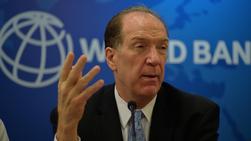 This photo shows the headquarters of the World Bank in Washington DC, on Jan 19, 2022. (DANIEL SLIM / AFP)
This photo shows the headquarters of the World Bank in Washington DC, on Jan 19, 2022. (DANIEL SLIM / AFP)
WASHINGTON - Developing countries face growing risks from financial fragility created by the COVID-19 crisis and non-transparent debt, the World Bank said in a report Tuesday, urging policymakers to focus on creating healthier financial sectors.
"Risks may be hidden" because the balance sheets of households, businesses, banks, and governments are tightly interrelated, according to the World Development Report 2022: Finance for an Equitable Recovery.
The risk is that the economic crisis of inflation and higher interest rates will spread due to financial fragility ... Tighter global financial conditions and shallow domestic debt markets in many developing countries are crowding out private investment and dampening the recovery.
David Malpass, World Bank Group President
High levels of non-performing loans and hidden debt impair access to credit, and "disproportionately" reduce access to finance for low-income households and small businesses, the report noted.
"The risk is that the economic crisis of inflation and higher interest rates will spread due to financial fragility," said World Bank Group President David Malpass. "Tighter global financial conditions and shallow domestic debt markets in many developing countries are crowding out private investment and dampening the recovery."
ALSO READ: IMF chief: 'A shot in the arm' fastest way for global recovery
The World Bank chief said it is critical to work toward broad-based access to credit and growth-oriented capital allocation. "This would enable smaller and more dynamic firms - and sectors with higher growth potential - to invest and create jobs," he said.
Surveys of businesses in developing countries during the pandemic found that 46 percent expected to fall into arrears, the report showed, warning that loan defaults could now "sharply increase," and private debt could quickly become public debt, as governments provide support.
 World Bank President David Malpass gestures as he speaks during a press conference at the World Bank office in New Delhi on Oct 26, 2019. (PHOTO / AFP)
World Bank President David Malpass gestures as he speaks during a press conference at the World Bank office in New Delhi on Oct 26, 2019. (PHOTO / AFP)
Calling for the proactive management of distressed loans, the report said that improving insolvency mechanisms, facilitating out-of-court workouts, especially for small businesses, and promoting debt forgiveness can help enable the orderly reduction of private debts.
READ MORE: G20 eyes boosting IMF war chest, extending debt-servicing freeze
The multilateral lender also noted that in low-income countries, dramatically increased levels of sovereign debt "need to be proactively managed in an orderly, and timely manner."


